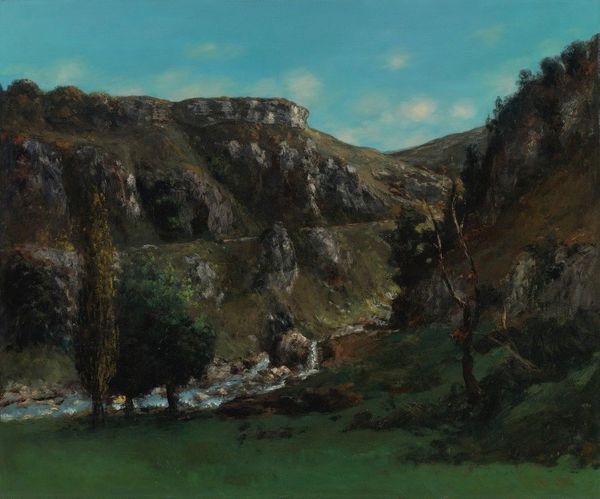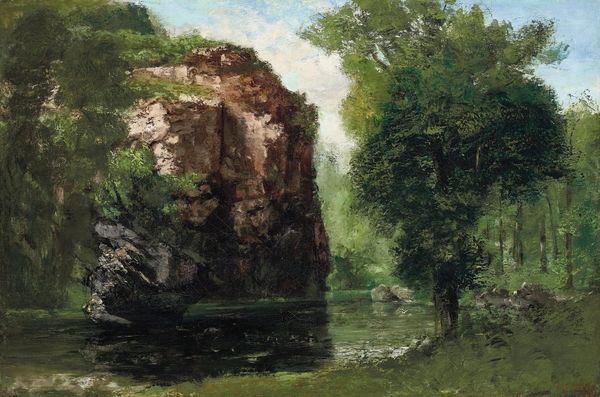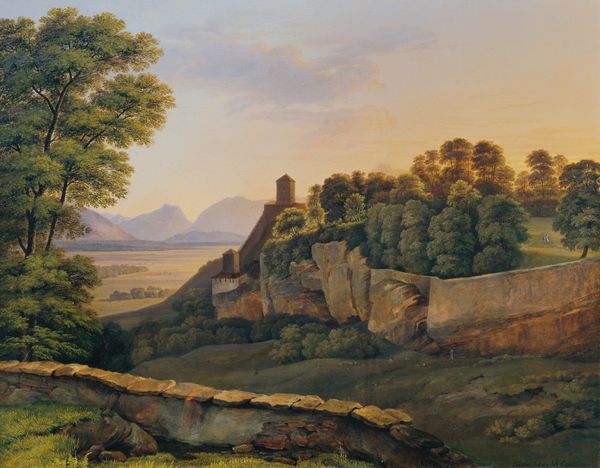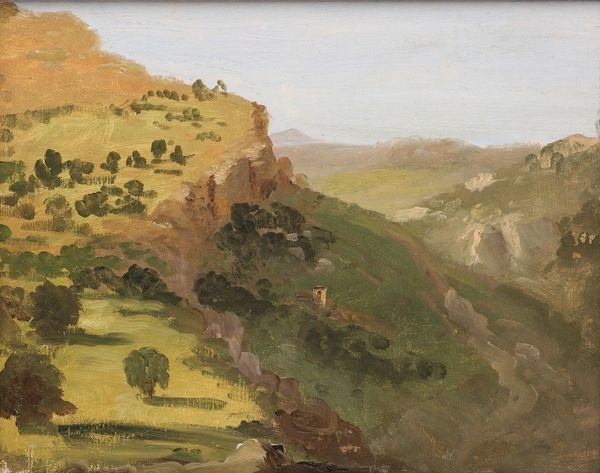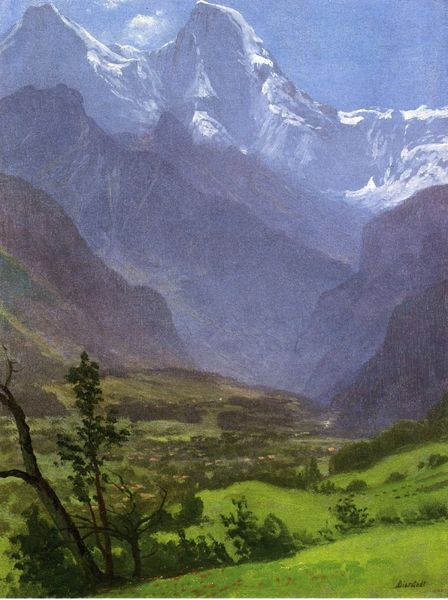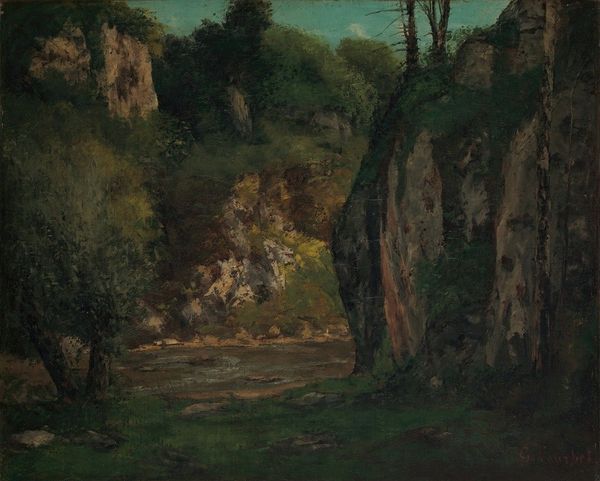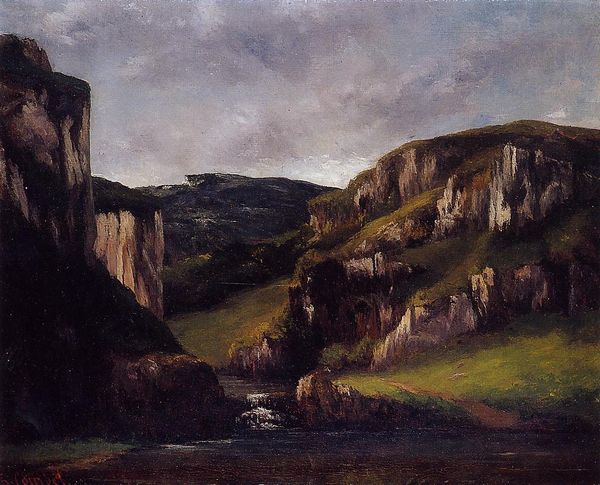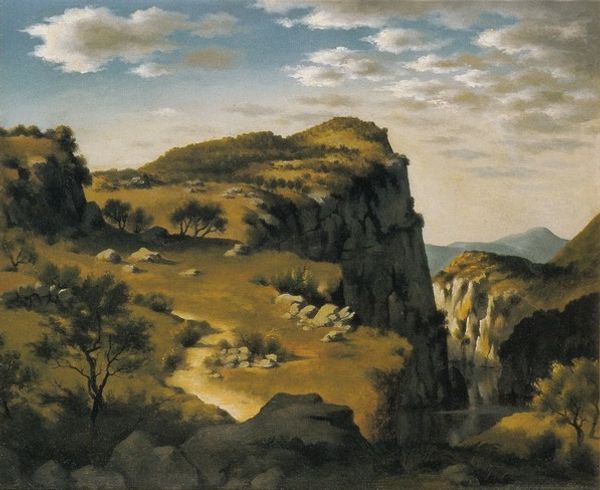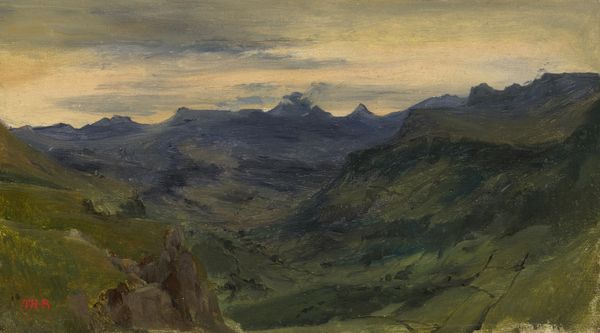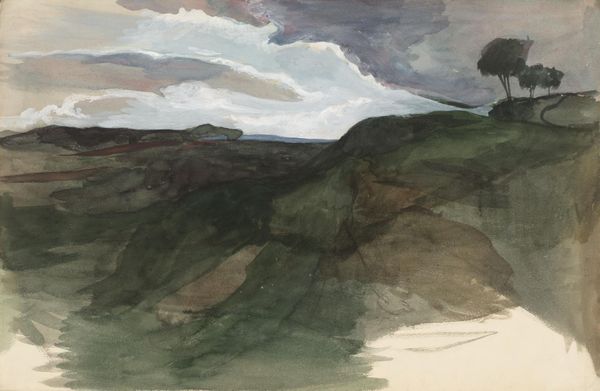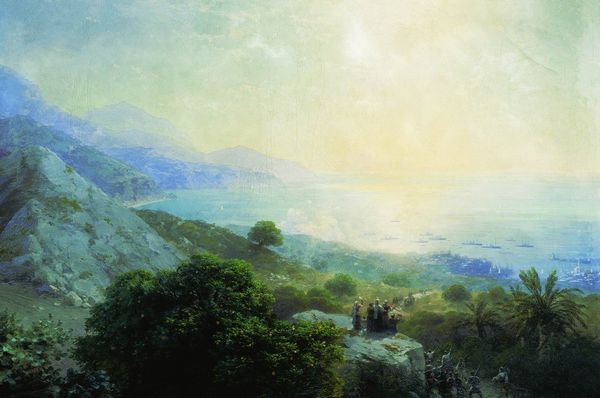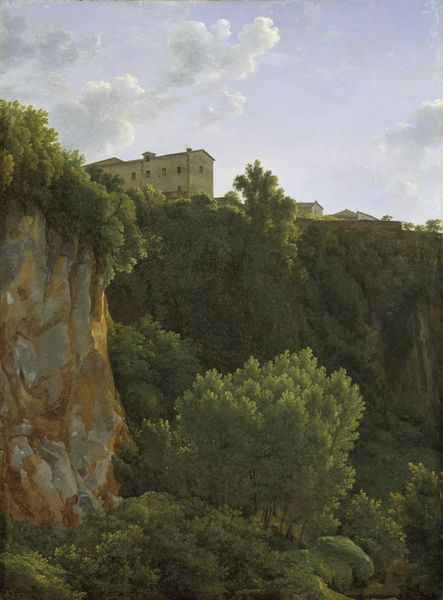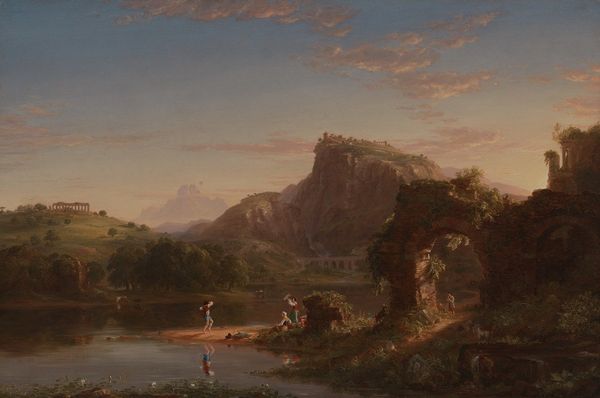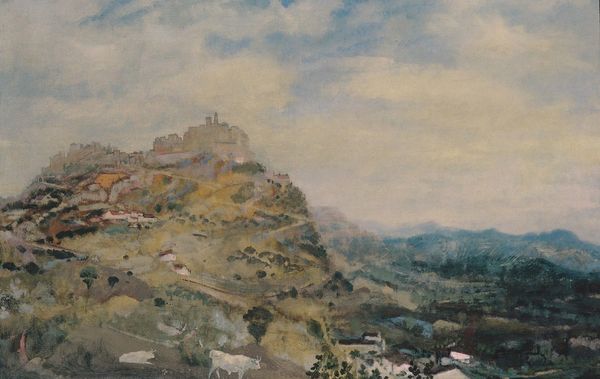
oil-paint
#
oil-paint
#
landscape
#
oil painting
#
romanticism
#
realism
Copyright: Public Domain: Artvee
Curator: Looking at this work by Gustave Courbet, called "Rocks at Mouthier," you immediately get a sense of place, don't you? The way he captures the geology, it feels intensely real. Editor: Real indeed. My first impression is a kind of brooding calmness. It’s almost… stage-like? As if the mountains and trees are players awaiting a grand drama. It definitely invites contemplation, although the somber tones suggest maybe a slightly melancholic one. Curator: Right, it's the density of that green against the starkness of the rocks that’s doing that, I think. Courbet, you see, was challenging the established Salon system by painting everyday scenes with this kind of seriousness, like histories. Think about who got memorialized at that point – saints and aristocracy. Not rock faces! Editor: So he's democratizing… landscape? Showing that the raw material of the earth, the unsung, gets the artistic leading role, just like anyone else? I love that subversive idea! The way he plays with light, catching some highlights, there’s something elemental about this composition. It really brings out the texture of the cliff. Curator: Precisely. He grounds us in the physicality of the place. No idealized Arcadia here, just the real Jura mountains of his home, frankly presented with thick impasto – he’s slathering paint to mimic how it feels. You can see why people found it revolutionary at the time! Editor: It still resonates today, I think. The raw energy is unmistakable, and I do see what you're saying now with its "anti-monument" feel. We still tend to monumentalize very little when it comes to environment, still often a backdrop, instead of a main character. Makes you wonder about our values, doesn't it? Curator: Absolutely. And the lack of human presence only reinforces that. He really wanted us to grapple with the non-human world as it exists, and as its own worthy subject of art. I think that's powerful. Editor: So, from raw geology to philosophical musings. Courbet would approve, I think, wouldn't he? Painting isn't just about aesthetics; it's a mirror reflecting the larger questions we should always ask ourselves.
Comments
No comments
Be the first to comment and join the conversation on the ultimate creative platform.
